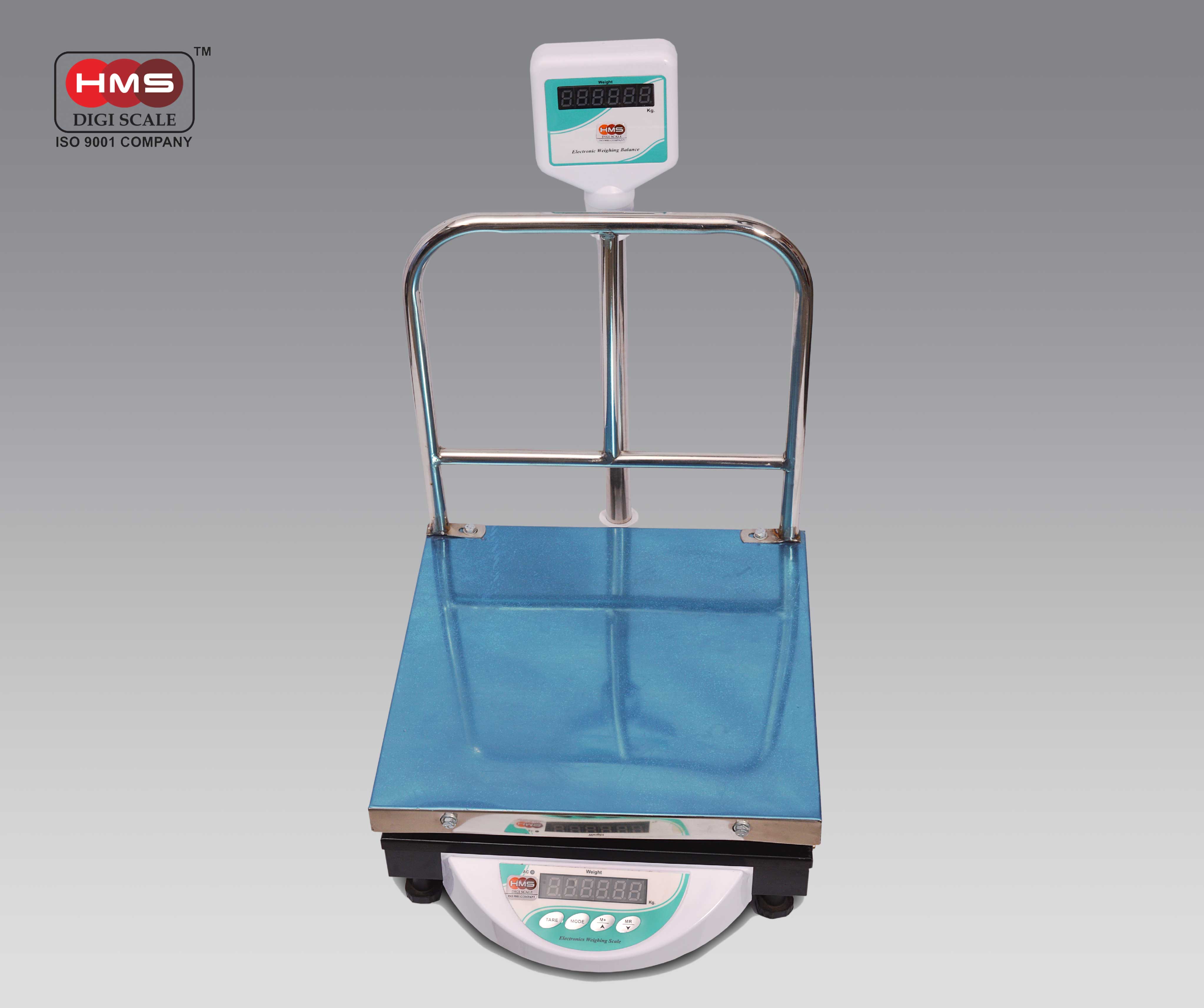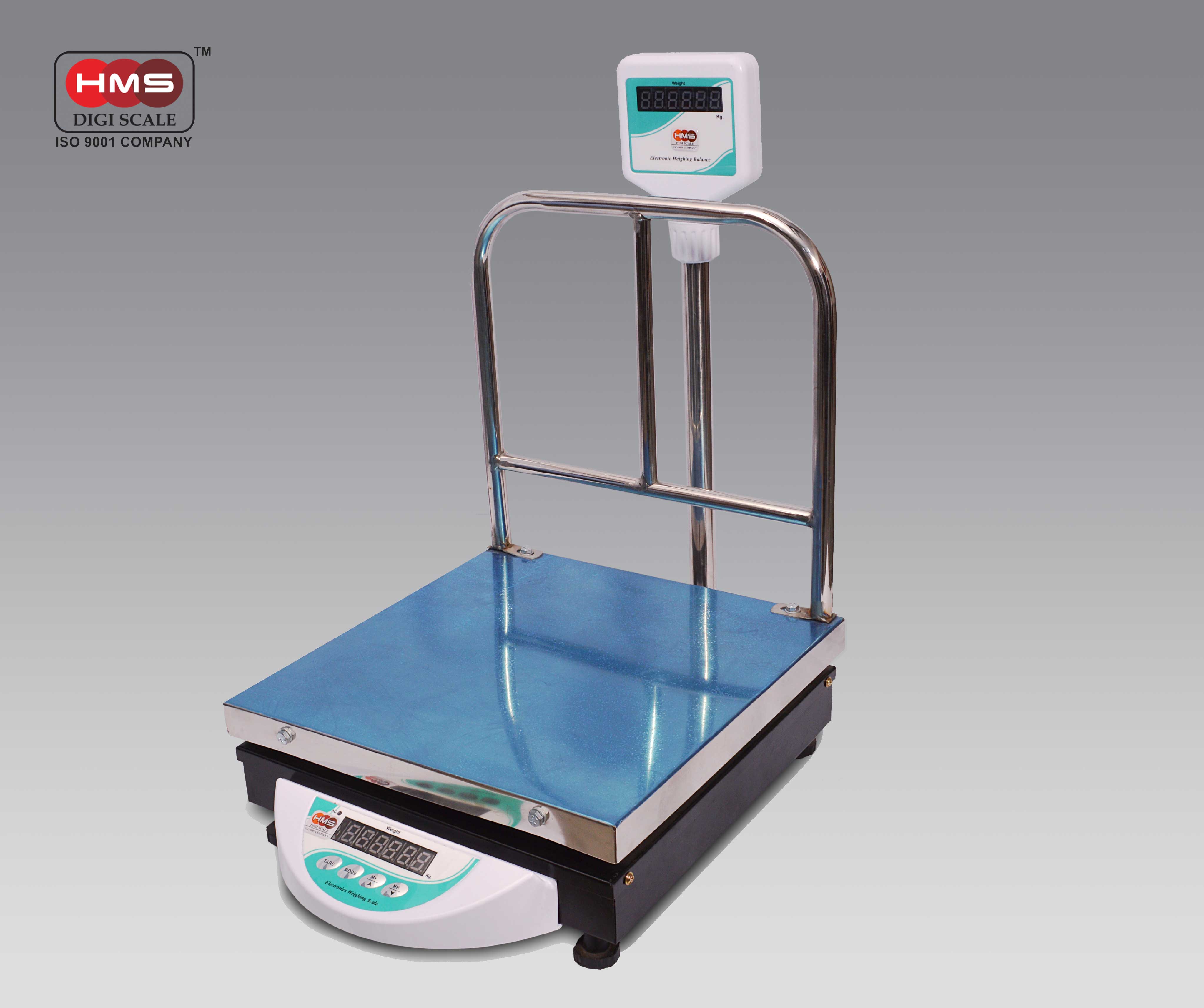Get a quote
HMS bench weighing scale, also known as a bench scale, is a type of weighing device commonly used in industrial and commercial settings for accurately measuring the weight of various objects placed on a flat, elevated platform (bench). These scales come in a range of sizes and weight capacities to suit different applications, from small bench scales used for weighing small items to larger bench scales used for weighing larger and heavier loads. Bench scales are versatile and find application in various industries, including manufacturing, shipping, food processing, and laboratory settings.
Here are some key features and characteristics of bench weighing scales:
Platform Design: Bench scales have a flat and durable platform where items to be weighed are placed. The platform can vary in size and material, depending on the scale's intended use and weight capacity.
Digital Display: Most modern bench scales are equipped with a digital display that provides a clear and easy-to-read measurement in units such as kilograms, grams, pounds, or ounces.
Weight Capacity: Bench scales come in a wide range of weight capacities, from small bench scales that can weigh a few kilograms to heavy-duty bench scales that can handle several tons.
Taring Function: The tare function allows the user to reset the scale to zero with a container or packaging on the platform, so only the weight of the contents is measured.
Connectivity: Some bench scales offer connectivity options, such as USB, RS-232, or Ethernet, which enable data transfer to a computer or central data management system. This is useful for tracking and recording weight data.
Battery or AC Power: Bench scales can be powered by AC electricity or batteries, providing flexibility for use in various settings, including areas without electrical outlets.
Durability: Depending on the application, bench scales can be constructed from materials such as stainless steel for corrosion resistance or heavy-duty steel for rugged environments.
Calibration: Regular calibration is necessary to maintain the accuracy of bench scales. Calibration weights or calibration procedures are used to ensure precise measurements.
Legal Compliance: Some bench scales are used in trade and commerce, and they must comply with legal metrology standards to ensure fairness in transactions. HMS Bench scales are often certified and verified by regulatory authorities.
Bench weighing scales have a wide range of applications, including:
Weighing and portioning ingredients in food processing and bakeries.
Checking and verifying weights in shipping and logistics.
Measuring chemical substances in laboratories.
Monitoring and controlling inventory in warehouses.
Weighing small animals in veterinary clinics.
Quality control and production processes in manufacturing.
When using a bench scale, it's important to follow proper weighing procedures, ensure that the scale is on a stable surface, and avoid overloading the scale beyond its specified capacity. Regular maintenance, including cleaning and calibration, is essential to ensure accurate and reliable measurements over time.
Bench Weighing Scale Applications
► General Weighing
► Dairy Units
► Meats & Cheese
► Industries
► Retail Shops
► Packaging Units
Technical Features
► Over load protection
► Weather & water proof sophisticated tactile keyboard
► High accurate load cell
► Approved by weight & Measurement Dept. Govt. of Tamilnadu
► 12 to 15 w power consumption
► 230 V ± 10% 50Hz volts AC.
► Operating Temperature Range 0°C to 50°C
Bench Weighing Scale - Technical Details
| Model | Capacity | Accuracy | Class |
|---|---|---|---|
| HMS-B | 50 Kg | 5 g | III |
| HMS-B | 100 Kg | 10 g | III |
HMS Product Videos
Please watch HMS Product demonstration videos availale at our youtube channel.



